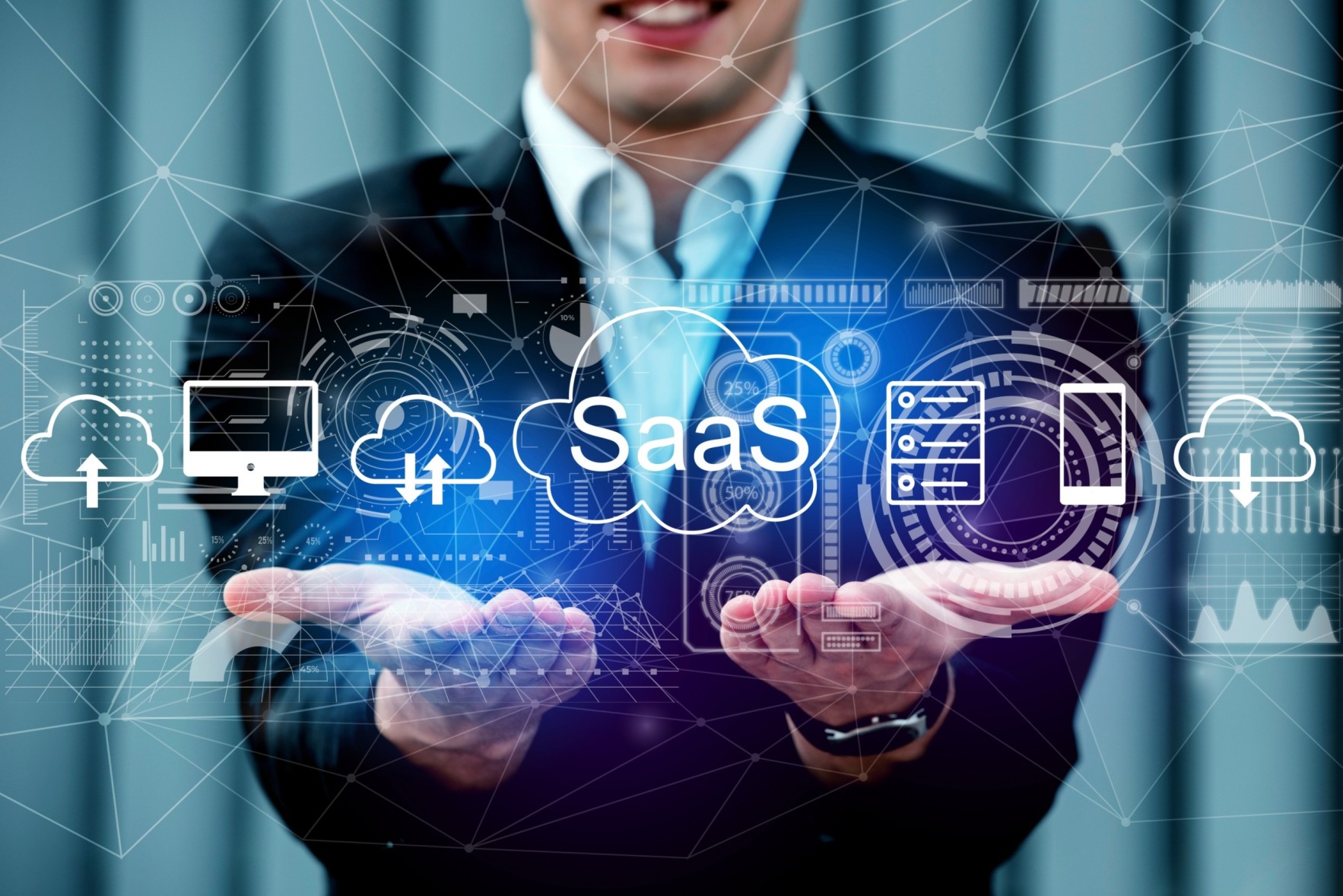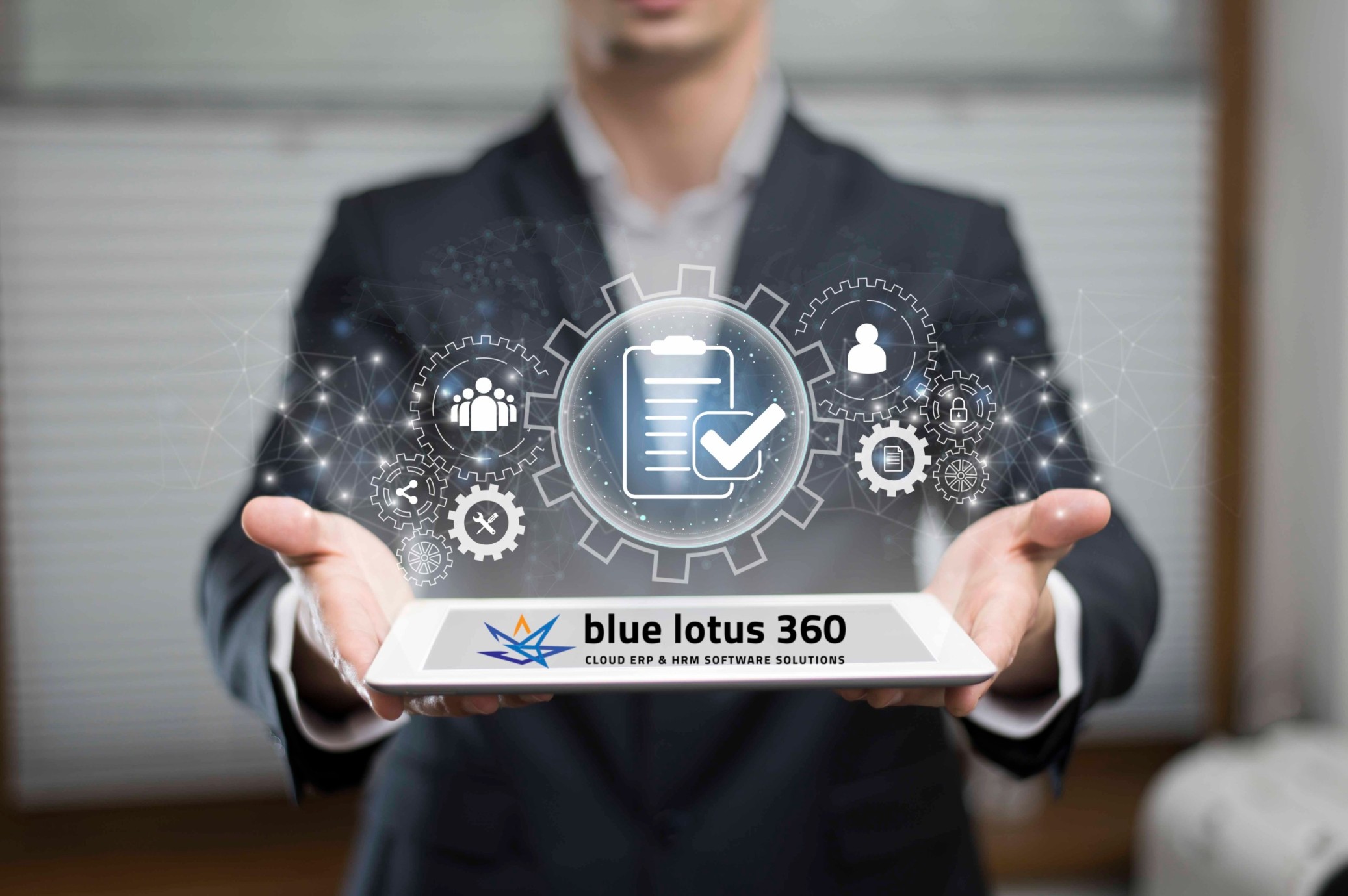Which Is Right for Your Business?
As companies modernize their operations, many are transitioning from traditional on-premise ERP systems to cloud-based solutions. However, a common point of confusion remains: What’s the difference between SaaS ERP and Cloud-Hosted ERP? Which option better suits your business?
In this article, we break down the key differences, benefits, and drawbacks of each approach to help you make an informed decision. As a trusted ERP provider, Blue Lotus 360 supports both models and can guide you toward the ideal solution for your business.
What Is ERP?
Enterprise Resource Planning (ERP) is software that integrates core business functions, financial and management accounting, inventory, procurement, human resources, warehouse management, sales force automation, project management, fixed asset management, task management and pipeline management into a unified system. It streamlines operations, improves accuracy, and enhances data-driven decision-making.
What Is Cloud-ERP?
Cloud ERP refers to ERP software that is hosted on remote cloud infrastructure instead of on-premise servers. These platforms are accessible via the internet and may be hosted by the ERP vendor or third-party providers like AWS, Microsoft Azure, or Google Cloud.
Key Features:
- Remote access from any internet-connected device
- Real-time data visibility for better decisions
- Scalable resources to match business growth
- Choice between public, private, or hybrid cloud hosting
Example Use Case:
A multi-warehouse manufacturing firm may use a cloud-hosted ERP system to track real-time inventory and coordinate logistics across locations.
What Is SaaS ERP?
SaaS ERP (Software as a Service ERP) is a type of Cloud ERP where the entire solution is hosted, maintained, and updated by the software vendor. Customers access it via the web and pay a monthly or annual subscription fee.
Most SaaS ERP platforms operate on a multi-tenant model, where multiple businesses share the same infrastructure but keep their data isolated and secure.
Key Features:
- No need to manage servers or IT infrastructure
- Automatic software updates and feature releases
- Subscription-based pricing (no upfront license costs)
- Fast deployment and ease of use
Example Use Case:
A small retail business can use a SaaS ERP solution to automate accounting, payroll, and inventory without hiring IT staff or investing in hardware.
SaaS ERP vs. Cloud ERP: What’s the Difference?
Though both are cloud-based, SaaS ERP and Cloud ERP differ significantly in control, customization, and management.
| Feature | SaaS ERP | Cloud-Hosted ERP |
| Deployment | Vendor-hosted on multi-tenant cloud | Vendor or third-party cloud infrastructure |
| Customization | Limited to configurations and extensions | Broad customization possibilities |
| Management | Fully managed by the vendor | May require internal or partner support |
| Pricing | Subscription-based, predictable | May involve license + hosting costs |
| Updates & Security | Automatically managed by vendor | Dependent on internal/external resources |
Analogy:
Think of SaaS ERP as renting a furnished apartment – easy, convenient, and low-maintenance.
Cloud-Hosted ERP is like owning a house – you have full control but also bear full responsibility.
Pros and Cons
SaaS ERP
Pros:
- No upfront hardware or software purchase
- Seamless scalability for growing businesses
- Minimal IT overhead
- Rapid deployment and automatic updates
Cons:
- Less control over infrastructure and updates
- Limited deep customization options
Cloud-Hosted ERP
Pros:
- High customizability for unique processes
- More control over data, security, and performance
- Flexible hosting options (public, private, hybrid)
Cons:
- Higher IT resource requirements
- Potentially complex cost structures
When to Choose SaaS ERP vs. Cloud ERP
Choose SaaS ERP If You:
- Run a small to mid-sized business with standard processes
- Need a quick, low-cost solution
- Don’t have a dedicated IT team
- Want predictable costs and automatic upgrades
Example: An e-commerce company looking to streamline sales, finance, and stock without IT complexity.
Choose Cloud-Hosted ERP If You:
- Operate in regulated industries (e.g. healthcare, manufacturing)
- Require deep system customization
- Have unique workflows or compliance needs
- Maintain an in-house IT team or external IT partner
Example: A manufacturing firm building custom products that require tailored workflows, integrations, and audit trails.
How Blue Lotus 360 Supports Your ERP Journey
Blue Lotus 360 is a SaaS-based ERP solution tailored to your industry and business model. Whether you’re a small retailer or a large manufacturer, our platform brings together essential business functions – finance, inventory, HR, procurement, project management, and e-commerce – into one seamless, cloud-powered experience.
Why Businesses Choose Blue Lotus 360:
- Rapid Implementation – Get started with minimal disruption
- Scalable Modules – Add functionality as your business evolves
- Powerful Integrations – Connect easily to payment gateways, e-commerce platforms, and accounting tools
- Localized Support – Regional expertise with dedicated hands-on assistance
- Proven Trust -Trusted by 200+ companies across diverse industries
The Future of ERP: SaaS Growth vs. Cloud Flexibility
ERP systems are evolving rapidly, and businesses are adopting solutions that offer more intelligence and less complexity.
Key trends:
- AI-driven features for forecasting, anomaly detection, and automation
- Deeper integrations with CRM, IoT, and industry-specific platforms
- SaaS ERP is gaining momentum due to affordability and user-friendliness
- Hybrid models are emerging to blend SaaS ease with custom cloud flexibility
Conclusion
Both SaaS ERP and Cloud ERP offer powerful tools to digitize and streamline your business. Your choice depends on your company’s size, complexity, IT resources, and long-term goals.
- Choose SaaS ERP for simplicity, speed, and affordability
- Choose Cloud ERP for control, flexibility, and scalability
Need guidance on what’s best for your business?
Talk to the experts at Blue Lotus 360. We’ll help you choose and implement the right ERP solution for sustainable growth.













